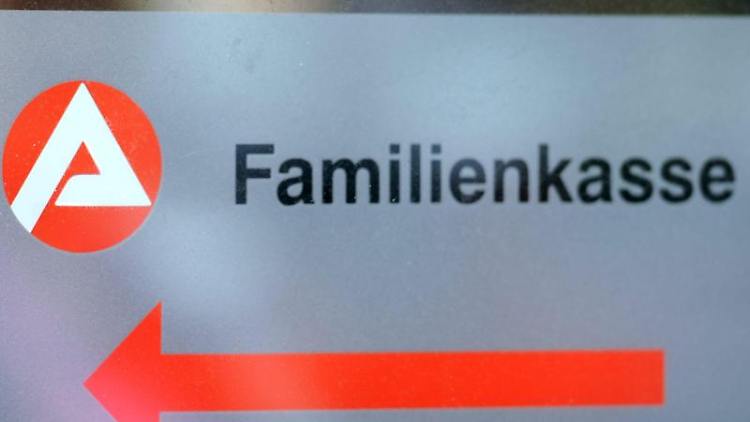
When children quarrel, parents’ nerves are bare. So they say a word of power, separate the argument, threaten, roar, implore, gripe, trick, distract and lose track. Parents can get involved in the dispute in no time, hastily identify a culprit, blindly decide who is right, and present a solution to the conflict without being asked.
You can do it, but it doesn’t help much. Because the next moment the argument starts all over again. And there are enough reasons for an argument:
• Who can have the excavator?
• Who should be the determiner?
• Who is she best girl friend?
• Who can play?
Arguing nicely? This works out!
Argue really well, that’s possible! But children need a little instruction and parents who act neutrally, impart and insist on rules. However, adults find it very difficult to have a relaxed view of what is going on, especially when siblings are arguing: this triggers the image of the harmonious family and strains the nerves in the long run.
The children themselves see it differently: “Arguing is also fun,” already assure four-year-olds. Much of the bad aftertaste that accompanies the quarrel among siblings, but also the quarrel between friends, shows more of the reluctance to conflict of adults than of real malice, wickedness and meanness. Children fight openly against each other in the quarrel – provided, of course, that their parents can stand it and allow them to live out feelings. Encouraging aggression to lead harmless symbolic or creative paths can also do a lot of good.
“If the dispute escalates, you have to stick to your own dispute rules, physically intervene and say to the older child:” You have now seen no other options than to hit. The little one really annoyed you now. ‘ Then you turn to the younger one: ‘That hurt you and you wanted to keep the toy too.’ Ask the older man, what would he have needed to react differently than to hit? It is important not to offer solutions, but only to collect ideas, ”says Berlin communication trainer Heidemarie Götting.
Parents should adhere to their own rules of dispute
Arguing children take responsibility for their quarrel more quickly when their parents stop feeling responsible for their quarrel. But parents shouldn’t just ignore the action with a shrug, but rather watch closely and adhere to their own rules of controversy. Then you will understand more and more and recognize details:
• Who has what concerns here?
• What dynamic is at work?
From the audience rank you can see better than in the middle of the field – and will soon have the key to understand the entire relationship clink. With our benevolent neutrality, we can help children to argue really well. Clarifying conflicts with the children, but not for the children – that would be the trick.
Before we intervene in the dispute, we better clarify what our goal is: Do we want to restore calm in the nursery or enforce obedience and rules? Do we want to support or protect the individual child? Or do we want to enable children to solve conflicts constructively and to learn something from them?
It depends on the role we slip into, how the story ends. If you can get the cocks to present their positions one after the other, a lot has been won.
When siblings have quarrels
If siblings quarrel, it is often about the parents’ attention and favor. Therefore: Do not act hastily as parents! And let the children fight, because fighting encourages social behavior.
Siblings often fight for parents’ attention
Quarrel among friends differs from sibling quarrel in one essential point: a playmate can always pull himself out of the affair by simply walking away. The pressure to find a solution is weaker – you don’t have to live with your opponent under the same roof. But a solution must be found among siblings so that you can stick together again.
In their families, brothers and sisters develop an unmistakable sense of the strategy with which they can draw the greatest attention from their parents. There is hardly anything that stresses family life more than the constant arguments of children. That is extremely annoying – and it should be. Children expect the hurrying parent to play referee. They argue for parents’ attention and favor, for privileges and possessions, because they believe that if you have to share it all will be less.
A fight is not a fight
In the heat of the moment, the referee easily makes mistakes: it is not always the same argument, but a new one every time. On closer inspection, the sacrificial lamb often turns out to be the real argument. And not only that. If we blindly transfer past situations to the current ones, we fix the children to their behavior in dispute, thereby depriving them of the opportunity to experience themselves differently and to behave differently. The lack of alternatives creates aggression, and a child quickly sees no other option than to strike.
Children have to fight
There is also something different to learn in every argument.This is why children have to argue: in a confrontation with another, you get to know yourself and the other better, when a shy child suddenly feels brave, and the stronger one can give in at once. Even more: how to make your own border draws and respects that of others, how to put yourself in someone else’s way, how to express your own feelings and express your opinion without hurting others, and how to endure that you are different – this is best learned in an argument.
And also, how not to be chopped off and still find a solution to the dispute that does justice to everyone involved is not one of us in the cradle. You have to be allowed to practice this like multiplication tables and ABC – preferably when arguing.
Do not intervene hastily in the event of a dispute
Quarrel is healthy and fundamentally allowed, “as an expression of uncontrollable, healthy forces in the child,” says the American psychologist Richard A. Gardener. “Any child who does not at least show a certain degree of sibling rivalry is a disabled child who has been defeated in the struggle for the expression of their own personality by those around them.”
And this is often done with the best of intentions: “As the big one, you can really give in” or “Be nice to him, after all he is your little brother”, so desperate parents appeal and fuel the family-internal competition Appeals are not achieved at all, and even less with the thundering prohibition of any hostile act.

Solving conflicts and disputes correctly
The real problem is not so much that there are conflicts, but in the lack of clarity about how to handle them so that everyone wins. There is a lot going on in the spectrum between fair and violent. Where else could you better explore your options than first in the family and then with friends? If you intervene too quickly, you take the conflict out of the children’s hands. And also misses the chance to get to know the children better.
Parents are fascinated to see how quickly small children happily move on to the agenda after an argument. You just forget. Their remarkable abilities not to let the communication break off and to play intensively again after a violent scramble allow them to live out their opposing impulses and to be safe: they are aware of their aggressions, but tend to be positive when it happens they are allowed to live out their feelings while complying with certain rules.
The children of a family build social fitness training for one another, in which they increase their endurance, skill and stamina. You learn how to deal with conflicts and disputes – either way. “Siblings know their respective arsenal very well, they can usually consciously calculate, plan and control their aggressive actions and statements,” emphasize the two sibling researchers Stephen Bank and Michael Kahn. Friends have to find out first.
In the long run, both friends and siblings learn to survive conflicts if you let them: “A fight promotes competence, morality, courage, creativity and loyalty”, say the two researchers.
RELATED ITEMS
-

Dispute over social benefits: no child benefit for young people in turkey
Child benefit must be applied for in writing from the responsible family fund. (Photo: Maurizio Gambarini / dpa) You don’t have to be in Germany…
-

Dispute over family policy: the mistakes of bishop mixa
Dispute over family policy The errors of Bishop Mixa Sebastian Großert Augsburg Bishop Walter Mixa stands by because of his statements…
-

Children need boundaries – citykirche – the magazine of evang-luth
When young people become parents, the joy of the new earthly man prevails. However, parents first have to learn themselves in their new role…
-
Schoolchild Sometimes your own children behave so unfamiliar that you can hardly recognize them. How children’s social behavior works….
“>
